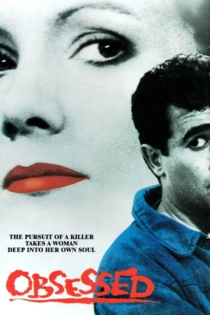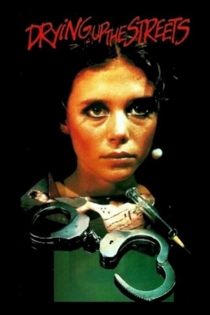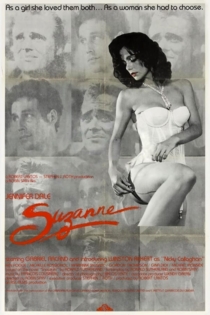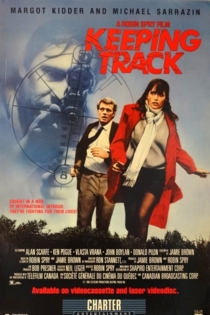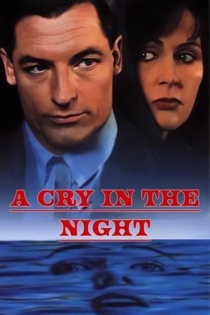
Robin Spry
1939 - 2005Spry was perhaps best known for his documentary films Action: The October Crisis of 1970 and Reaction: A Portrait of a Society in Crisis about Quebec's October Crisis.
Robin Spry was born in Toronto, Ontario to Canadian broadcast pioneer Graham Spry and economic historian Irene Spry.
After studies at Oxford University and the London School of Economics, Spry began his filmmaking career in 1964 at the National Film Board in Montreal, earning a place on its payroll in 1965 and remaining there until stepping down in 1978. While at the NFB Spry built a reputation as a documentarist engaged with the issues of the day, with films on abortion, youth rebellion, and contemporary politics. His Prologue documented the riots at the 1968 Democratic National Convention in Chicago, weaving narrative with archival footage to become, in 1969, the first Canadian film to appear at the Venice Film Festival. His Canadian Film Award-winning documentary Action: The October Crisis of 1970 (1973) used a similar approach to tell the story of the kidnapping of British diplomat James Richard Cross and the murder of Pierre Laporte. Spry also tried his hand at other aspects of the film trade, acting as a producer, filmmaker, screenwriter, actor, cinematographer and film editor, and appearing in several colleagues' films, including Denys Arcand's Québec, Duplessis et après" (1972), reading out sections of the 1837 Durham Report. Spry starred in the 1981 hostage film Kings and Desperate Men.
In the mid-1970s Spry left the NFB to focus on production work, founding Telescene and then, upon its bankruptcy in 2000, continuing to work with other production firms in Montreal. Among the films he produced were Léa Pool's À corps perdu (1988), André Forcier's Une histoire inventée (1990), and John Hamilton's The Myth of the Male Orgasm (1993); he was also responsible for a number of television series, such as The Lost World. Other notable works included the 1995 mini-series, Hiroshima, about the events leading up to the atomic bombings of Hiroshima and Nagasaki, which won a Canadian Gemini Award and was nominated for an American Emmy, as well as earlier films One Man (1977), Drying Up the Streets (1978), and Suzanne (1980). Spry died in an early-morning road accident on March 28, 2005 in Montreal, Quebec, leaving behind a son, Jeremy, and a daughter, Zoé, whom he had fathered by journalist Carmel Dumas (from whom he was divorced at the time of his death).
The first season of Charlie Jade was dedicated to his memory, as mentioned in the credits of the final episode, as was Air Crash Investigation's episode "Mistaken Identity".
Source: Article "Robin Spry" from Wikipedia in English, licensed under CC-BY-SA 3.0.
Flowers on a One Way Street
Robin Spry
In the summer of 1967, a hippie group called The Diggers - led by the cool and charismatic 23-year old David DePoe - wanted to turn the street where they resided, Yorkville Avenue in Toronto, into a car-free zone. Fed up with the noise and fumes from cars, DePoe staged a 3-day sit in where the Diggers peacefully occupied the street to petition the Toronto City Council to get what they wanted. To their surprise, the police were ordered to remove them by force by the city officials who wanted to keep the street open as a necessary traffic artery. After being released from jail, DePoe and his group were invited by the fiercely conservative and patronizing Allan Lamport, a member of the Board of Control and former Mayor of the city to a meeting at City Hall to present their case. The climactic battle unfolded there between Lamport and DePoe, who was representing the Canadian Youth Council.
Flowers on a One Way Street

Action : The October Crisis of 1970
Robin Spry
A long and thoughtful look at those desperate days of October 1970, when Montréal awaited the outcome of FLQ terrorist acts. This film puts the October Crisis in the long perspective of history. Compiled from news and other films, it shows independence movements past and present, and their leaders; it reflects the mingled relief, dismay, defiance, when the Canadian army came to Montréal; and it shows how political leaders viewed the intervention.
Action : The October Crisis of 1970
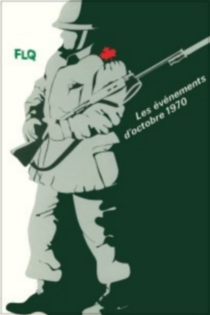
Reaction: A Portrait of a Society in Crisis
Robin Spry
This feature documentary gives voice to various English-speaking groups in Montréal and other places in Québec as they react to the October Crisis of 1970, when Québec nationalism took a violent turn. A British diplomat had been kidnapped, a Québec cabinet minister murdered. The troops were brought in as a safeguard. This film is a vigorous reflection of the discussions and analyses of the situation that went on wherever people gathered, voicing attitudes and fears, sympathies and concerns.
Reaction: A Portrait of a Society in Crisis
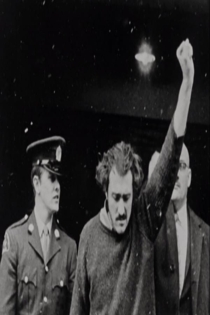
Ride for Your Life
Robin Spry
Mike Duff
This short documentary is about Mike Duff, a Canadian motorcycle racer, and the sport that almost killed him. After a near-fatal crash in Japan and extensive surgery and therapy, Duff returned to racing to claim two victories in Canadian races. Though the sport takes its toll on the lives of his friends and fellow competitors annually, the racer explains he can’t give up just yet – not before winning a world championship.
Ride for Your Life
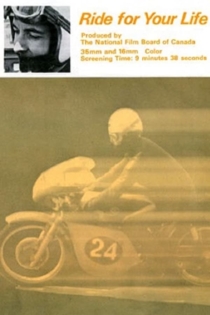
One Man
Robin Spry
Len Cariou, Jayne Eastwood
In this socially conscious drama, a TV journalist begins investigating a large factory that has been threatening the health of the children who live in the town's poorest, most polluted section. Because of his investigation, he and his family are threatened by company thugs. He gets no help from his TV station as they are loathe to tangle with big business.
One Man
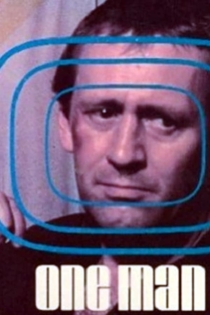
Prologue
Robin Spry
John Robbe, Elaine Malus
This film tells the story of a young Montrealer who edits an underground newspaper with help from his female friend and a draft dodger from the United States. Two rival philosophies of dissenting youth become evident in the choices they make: militant protest vs. communal retreat. Including some seminal archival footage of a speech by legendary anti-war activist Abbie Hoffman and bloody rioting during the 1968 Democratic Convention in Chicago.
Prologue
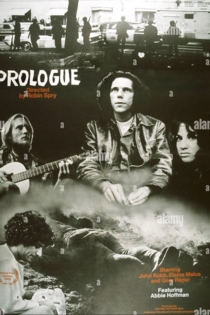
Hitting Home
Robin Spry
Kerrie Keane, Daniel Pilon
Canadian businesswoman Dinah Middleton's is devastated when her teenage son, Alex, is killed by a hit-and-run driver. When the police fail to turn up any suspects, she turns private detective to track the killer down. She traces the murderer to New York, only to discover that the crime is not covered by the extradition treaty between Canada and the US. She becomes obsessed with bringing the criminal to justice.
Hitting Home
